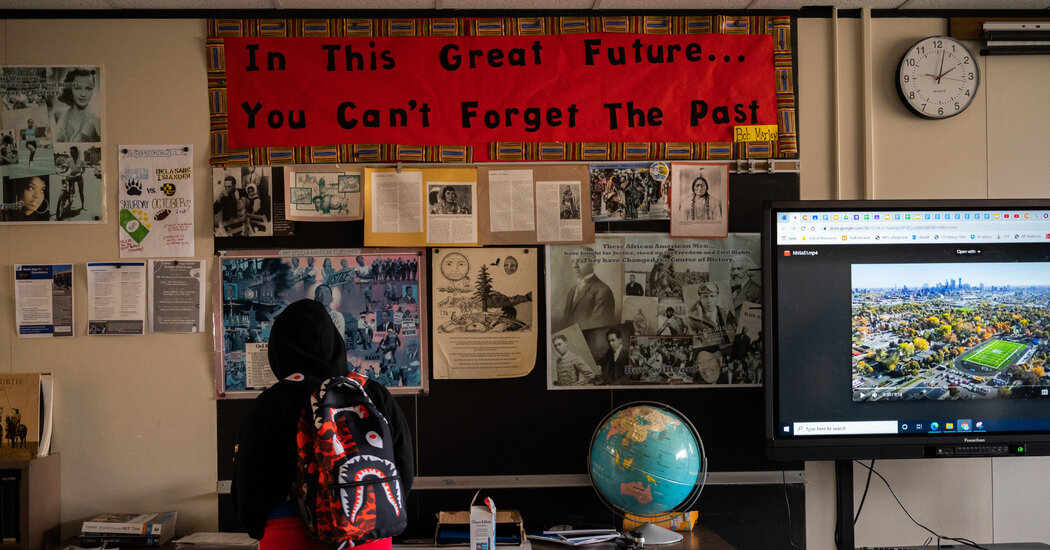
But Ms. Jackson couldn’t help but ask: Why now?
To her, some changes, like the planned renovation, signaled gentrification. Even as North High opened up to white families, some Black families, like hers, were reassigned to a different school, though North’s low enrollment meant that, for now, they could apply to stay.
“I feel like they want to start implementing these things because they are getting white students,” Ms. Jackson said. “A lot of white families, when they say it, they fight for it, they want it, and they get it. But why does it take us 15 years?”
To Attend or Not: White Families Face a Decision
For white and more affluent parents, the new school plan also landed with a thud.
In southern neighborhoods newly rezoned to North, real estate agents began to hear from families selling their homes. At one point, images circulated on social media of a sign outside a coveted elementary school, where the students, 60 percent white, would eventually be assigned to North.
The sign depicted a tombstone. “R.I.P.,” it read. “This will destroy our community.”
One big challenge for the district was that families could still choose charter or suburban schools. In one part of the new zone, which includes some of the more affluent neighborhoods, just 15 percent of new families assigned to North decided to attend, according to district figures.
Parents evaluating the school at a glance would have seen some concerning statistics: High crime rates in the area, low test scores, a 1 out of 10 rating on GreatSchools.org.
At the same time, the view of places like North is complicated by research that indicates white, advantaged parents may use the number of other white, advantaged families attending as an indicator of school quality. And while test scores are one important measure, they are also closely tied to income and can be imperfect windows into a student’s full experience.
“We aren’t as bad as people make us seem,” said Alexandria McNeill, a 17-year-old senior at North, who is Black. Through the rezoning, she said she hoped other families would come to view her community more like she did: a place of home and belonging, a launching pad for college, and what she hopes will be a career in communications.







